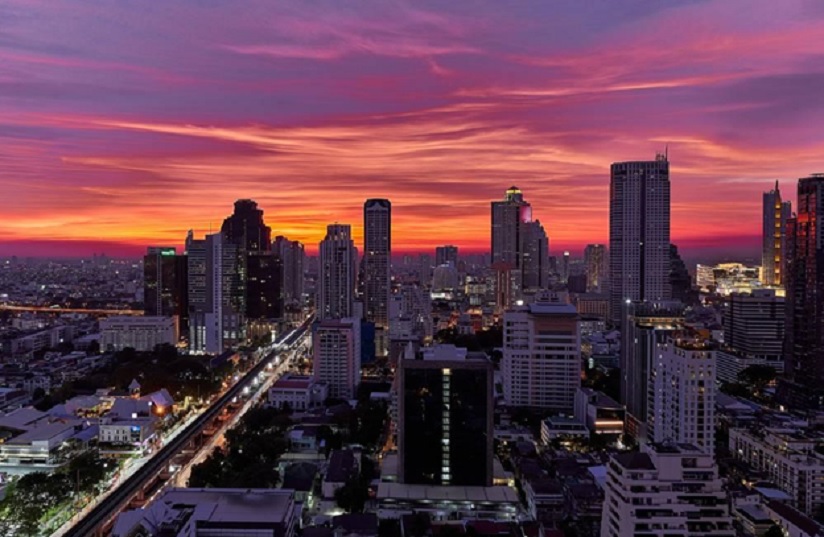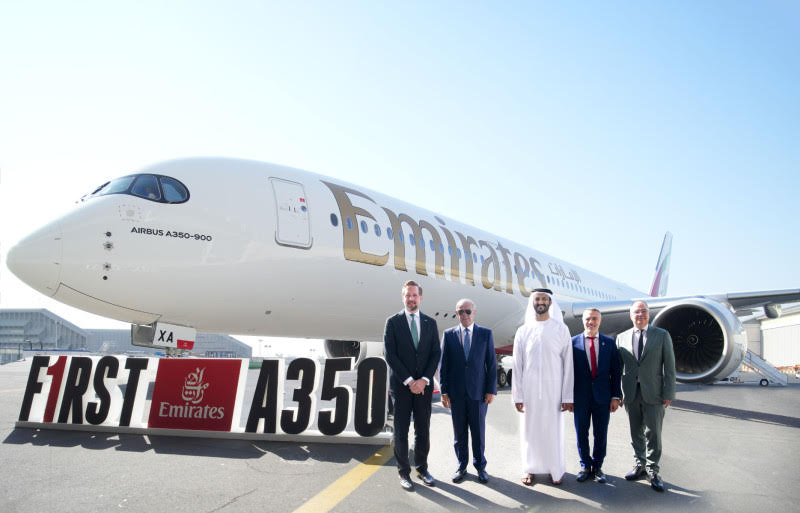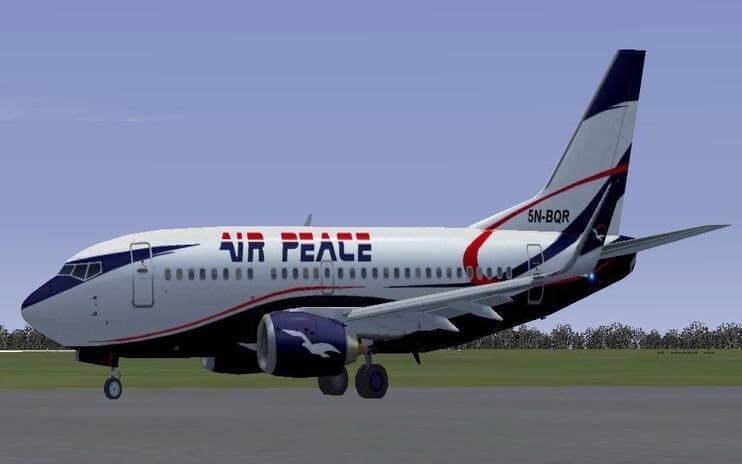Travel/Tourism
Philippines Casino Resorts: A Model for Thailand’s Gambling Industry?

A big game-changer and a big investor, Megaworld Corporation is spending P20 billion in San Lazaro Tourism and Business Park in Manila in the Philippines. They are building a modern casino resort which will be the next significant development in the gaming industry.
The government is attempting to boost foreign investment and tourism, which are essential for economic growth. It is expected that the proposed casino resort will create a large number of jobs and increase foreign travel to the Philippines. Moreover, it will help place the nation as a prominent player in the global gambling market, competing with gambling destinations like Macau and Las Vegas. But what about the Thai casino industry? How does the Philippines’ casino investment plan compare to Thailand’s own casino industry?
Thailand’s Stand on Gambling
As gambling is now largely prohibited in Thailand, there aren’t any licensed casinos operating on the market. The only exception is the Thailand state lottery and horse race betting, which are authorized by the government. Nevertheless, with the growing popularity of online gambling, players can still access Thai online casinos. The government is putting a lot of effort into advocating the development of legal casinos that may benefit the nation’s economy. However, a large proportion of the public is still worried about the possible social issues that could result from increased gaming.
Supporters argue that having legal casinos would bring significant economic benefits to the country, increase revenue and create job opportunities. It would also boost the existing tourism economy by offering visitors another sort of entertainment.
Those objecting to legalizing gambling argue that it presents a social risk as gambling addiction might cause financial and psychological issues for individuals and their families. Some people are also concerned that casinos might turn into a hotspot for criminal operations like money laundering and organized crime.
Casino Laws and Beliefs
The Playing Cards Act of 1943 and the Gambling Act of 1935 forbid casinos and gambling in Thailand. These regulations make it illegal to participate in or promote gambling activities and explicitly prohibit most games that include wagering. Another reason why casinos are outlawed in Thailand is the nation’s cultural and religious convictions. The nation’s most widely practiced religion Theravada Buddhism considers gambling as a sin that can cause addiction, loss of faith, and financial disaster.
Gambling Opportunities in Sight
Thailand is trying to use the Philippines’ experience with Integrated Resorts as a way to legalize casinos and other types of gambling in the near future. The initiative could potentially convince the public that a well-planned and controlled casino business can bring large investments, boost tourism and stimulate the economy.
The House of Representatives has already approved a proposal to build five resorts with integrated casinos in the next few years. They require additional research on the potential revenue for the country in order to make a final decision, but things are definitely moving in that direction.
The proposal states that 5% of the resort area will be reserved for an integrated casino, leaving a significant amount of space for additional amenities and attractions for tourists. These could include hotels, restaurants, shopping centers, wellness and fitness centers, theme parks, and other forms of entertainment.
The five most popular tourist cities in Thailand have been chosen as the perfect locations for the proposed developments. Bangkok and other seaside destinations will offer tourists more diverse entertainment that will include the services of a casino floor. Tourists and domestic citizens aged 21 and over will be permitted to enter the casino and participate in games of chance. Local players, however, will be subject to certain limitations and must present evidence of their financial stability along with sufficient funds in order to gamble.
The special House Committee that prepared the proposal also estimates that the integrated casino business will bring approximately $11bn of revenue if the tax is set at 30% for the operator. Other benefits include taxes collected from individual winnings and the additional positive impact they will have on the economy.
The integrated resorts will open new job opportunities that will help the local economy. They will attract more tourists and make them spend more money in the country. Most importantly, they will engage local players and prevent the outflow of funds to other countries.
Final Thought
Despite the numerous challenges posed by legalizing casinos and regulating the gambling market, Thailand is persevering to find a successful solution. It appears that the introduction of resorts with integrated casinos, offering a variety of entertainment, will open the industry up to domestic players and attract more tourists. The anticipated economic benefits and positive impact in the coming years are expected to be substantial.
Travel/Tourism
Musawa, Governor Mba Commission Enugu Christmas Village

By Dipo Olowookere
The Enugu Christmas Village has been commissioned by the Minister of Arts, Tourism, Culture, and the Creative Economy, Ms Hanatu Musawa; and the Governor of Enugu State, Mr Peter Mba.
This development officially kicked off the holiday season in the state, giving residents and others from across Nigeria and outside the opportunity to relax in an atmosphere of love, positioning Enugu as a key destination for cultural and holiday tourism.
Facilitated by Omu Resort, a leading tourism promoter in Africa, the Enugu Christmas Village is set to become the heartbeat of holiday celebrations in the state.
The company has already organised a 25-day festival at the village designed to attract residents, visitors, and dignitaries from across the region.
With its vibrant atmosphere and festive attractions, the Enugu Christmas Village boasts an array of attractions such as a waterpark, roller skating, archery, amusement rides, and much more.
At its centre is a breathtaking display of 500,000 Christmas lights, illuminating the village in a magical glow that promises to captivate visitors of all ages.
The festival goes beyond the lights and rides, offering a rich tapestry of events that celebrate the state’s cultural heritage.
Highlights include Afrobeat Concert, Praise Night, Highlife Concert Street Carnival, Cultural Parade and a Grand Fireworks Show.
One of the most anticipated moments is the Santa Street Storm, where over 100 Santa Claus figures riding tricycles will parade through the streets, distributing gifts to orphanages and the less privileged, spreading joy and goodwill.
Running from December 7 to December 31, 2024, the Enugu Christmas Festival is more than just a celebration of the holiday season. It underscores the state’s cultural vibrancy and its potential as a leading tourist destination.
The festival offers a unique opportunity for families and friends to come together, celebrate, and unwind in a festive atmosphere. It is also expected to fosters unity and showcases the rich cultural heritage of Enugu State, while promoting arts, tourism, and community well-being.
Travel/Tourism
Emirates Unveils Airbus A350-900 in Dubai

By Aduragbemi Omiyale
One of the leading airline operators, Emirates Airline, has officially unveiled its first Airbus A350-900 at an exclusive event showcase in Dubai attended by aerospace partners, government officials and dignitaries, members of the media, as well as aviation enthusiasts.
The Emirates A350 features three spacious cabin classes, accommodating 312 passengers in 32 next-generation Business Class lie-flat seats, 21 Premium Economy seats and 259 generously pitched Economy Class seats.
The latest onboard products reflect the airline’s commitment to delivering a premium passenger experience while optimising operational efficiency. The Emirates A350 is the first new aircraft type to join Emirates’ fleet since 2008.
Apart from its newly delivered A350, Emirates operates two other aircraft types around the world to 140 destinations – the widebody Boeing 777 aircraft and the iconic ‘double decker’ Airbus A380 aircraft.
The A350’s introduction will enable Emirates to expand into new destinations globally, including mid-sized airports unsuited for larger aircraft. The Emirates A350 will be delivered in two versions – one for regional routes and one for ultra long-haul routes.
The Emirates A350 takes technology to another level. Customers can now adjust their electric window blinds at the touch of a button.
The aerBlade dual blind system will feature in Business and Premium Economy Class offering two shaded options, and the aerBlade single blind systems will make a debut in Economy Class, with all blinds showing the Emirates Ghaf tree motif when closed.
Business Class on the Emirates A350 will feature 32 luxurious leather ‘S Lounge seats’, inspired by the Mercedes S Class for an exceptional travel experience. The A350 aircraft will feature brand new additions of wireless charging on the side cocktail table in Business Class, and in-seat lighting controls with 5 streams of light. The 1-2-1 seat configuration in the A350 Business Class ensures a very private, exclusive experience.
Speaking at the event, the chairman of Emirates Airline, Mr Ahmed bin Saeed Al Maktoum, said, “Today is an exciting milestone for Emirates as we showcase our first A350 and usher in a new era for our fleet and network growth.
“This aircraft sets the stage for Emirates to spread its wings farther by offering added range, efficiency and flexibility to our network, enabling us to meet customer demand in new markets and unlock new opportunities in the cities that we serve.
“Onboard, our updated interiors and seating configurations will help us deliver a more elevated and comfortable experience to travellers across every cabin class.
“The 65 Emirates A350s joining our fleet in the coming years fit into the airline’s broader plans to support our visionary leadership’s Dubai’s D33 Strategy, which will transform the city into a pivotal hub in the global economy by expanding its connectivity and reach.”
Travel/Tourism
Air Peace Employees Undergo Training at Boeing Global Learning Institute

By Aduragbemi Omiyale
Some employees of Air Peace have upgraded their aviation safety skills at a training course organised by Boeing through the Boeing Global Learning Institute (BGLI) in collaboration with Cranfield University, United Kingdom as part of a shared commitment to shaping the future of aviation leadership.
Over the years, Air Peace has recognized that a deep, unwavering commitment to safety is key to its continued success.
The programme is aimed at building upon that vision, enabling executives to lead with confidence, manage risks effectively, and create high-performing teams that prioritize safety at every level.
In the five-day in-person training, all the executives and others in the various departments of Air Peace were taught advanced safety leadership skills and gained practical tools to implement the new knowledge.
The Head of Aerospace at Cranfield University, Prof Graham Braithwaite, said, “This collaboration ensured that the training directly addresses the challenges Air Peace faces, culminating in real-world capstone projects that would have a lasting impact.”
Reinforcing this position, the Lecturer for Organisational Resilience and Change at Cranfield School of Management, Fabian Steinmann, who was excited at the great progress Air Peace made over the years, said that they are happy to learn and share knowledge and find ways to strengthen the system, making it robust and flexible to adapt to the ever-changing environment.
“Safety is at the heart of everything we do at Cranfield so the privilege we have is that we travelled around the world, picked up the good practices, learned more about the culture and the operation in various countries so we’re here to facilitate that exchange with Nigeria and Air Peace to see how we share some of the good practices and lessons learned from all around the world and translate them into their operation.”
Also, the Senior Organisational Consultant and Programme Manager at Boeing Global Learning Institute, Harry Magui, said, “The Boeing company has long recognised the importance of supporting continuous learning of our aviation partners.
“To that end, the Boeing Global Learning Institute designs and delivers numerous learning programmes to both emerging and established leaders of our partners.
“These efforts aim to develop leadership, business, and technical skills so that our partners can improve their business processes, increase operational efficiency and enable leaders to strengthen their teams to ultimately grow their business.’
Alluding to the great work Air Peace has done in making safety a pre-condition rather than just a priority, Magui said, “We’re here to partner with our great partner, Air Peace who have been phenomenal in advancing the Aviation Industry in Nigeria, so we are here to support them to harness more opportunities in the future with the Advanced Leadership in Safety Excellence Training for all its top leadership within the organization.”
The Safety Manager at Air Peace, Captain Godfrey Ogbogu, said, “This class is quite essential and we’re lucky to have our resource persons impact knowledge on us. It is a well-structured training, especially for Air Peace because of where we are now and where we hope to go in the future.
“The whole essence of this class is to reinforce what we know before and be exposed to other avenues of learning. The aviation industry is ever-changing and dynamic, and Air Peace has to be abreast of such developments.”
-

 Feature/OPED5 years ago
Feature/OPED5 years agoDavos was Different this year
-
Travel/Tourism8 years ago
Lagos Seals Western Lodge Hotel In Ikorodu
-

 Showbiz2 years ago
Showbiz2 years agoEstranged Lover Releases Videos of Empress Njamah Bathing
-

 Banking6 years ago
Banking6 years agoSort Codes of GTBank Branches in Nigeria
-

 Economy2 years ago
Economy2 years agoSubsidy Removal: CNG at N130 Per Litre Cheaper Than Petrol—IPMAN
-

 Banking2 years ago
Banking2 years agoFirst Bank Announces Planned Downtime
-

 Sports2 years ago
Sports2 years agoHighest Paid Nigerian Footballer – How Much Do Nigerian Footballers Earn
-

 Technology4 years ago
Technology4 years agoHow To Link Your MTN, Airtel, Glo, 9mobile Lines to NIN










